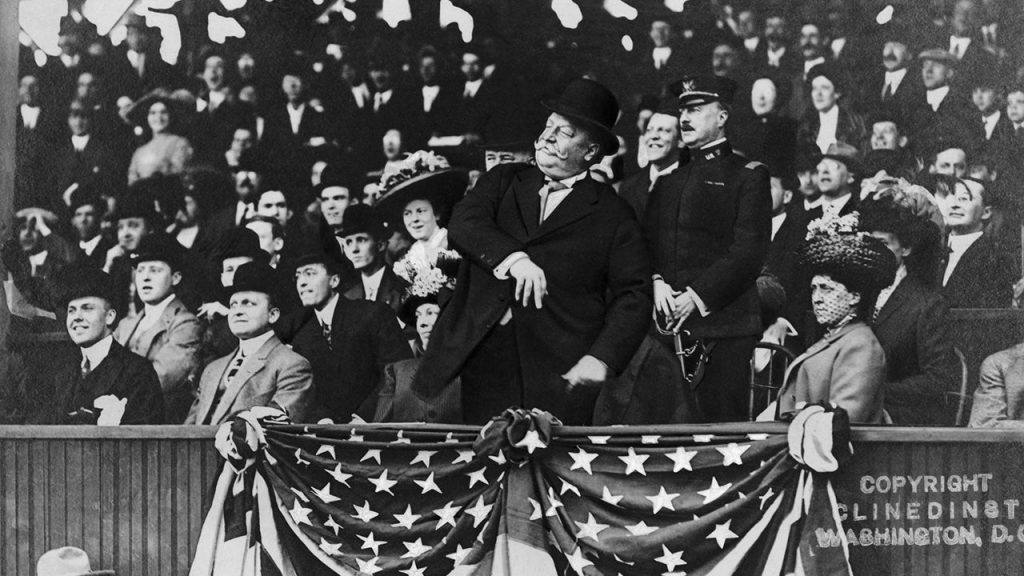Opening Day in baseball is a beloved American tradition that marks the beginning of the spring season. On April 14, 1910, President William Howard Taft became the first U.S. president to throw out the first pitch at a Major League Baseball game, starting a long-standing tradition that continues to this day. Taft, who was known for his love of baseball, had the honor of starting a game between the Washington Senators and the Philadelphia Athletics in Washington, D.C. Taft’s presence at the game was celebrated by fans and sportswriters alike, and he remained a fan of the game even after leaving office.
Before becoming president, Taft had been elected as the 27th president of the United States (1909-1913) and later served as the 10th chief justice of the United States (1921-1930). Taft’s unique position as the only person to have held both of these offices highlights his significant contribution to American politics and law. Taft’s dedication to baseball as a spectator and his enthusiasm for the sport endeared him to fans and spectators alike, making him a popular figure at baseball games.
Taft’s philosophy on baseball and his active participation in the sport as a fan helped to promote baseball as a healthy and enjoyable pastime for Americans. Taft’s attendance at baseball games, including Opening Day events, demonstrated his support for the sport and his desire to encourage others to enjoy it as well. Following his presidency, Taft continued to attend baseball games and remained a fan of the sport, further solidifying his legacy as a baseball enthusiast and supporter.
The significance of Opening Day in baseball is rooted in tradition and history, with the Cincinnati Reds hosting the event from 1876-1989. Considered by many to be a national holiday, Opening Day marks the beginning of the spring season and brings hope to fans that their team will have a successful year. President Taft’s involvement in the first pitch ceremony and his continued support for baseball helped to elevate the sport as a national pastime and tradition, creating a lasting legacy that continues to this day.
Taft’s tenure as president was marked by challenges and political struggles, with historians noting that he was a distinguished jurist and effective administrator but a poor politician. Despite facing intense battles between progressives and conservatives, Taft was able to achieve several significant accomplishments during his administration, including signing the first tariff revision since 1897 and forming the Interstate Commerce Commission. Taft’s legacy as a president and baseball enthusiast is a testament to his dedication to public service and his love for America’s favorite pastime.














